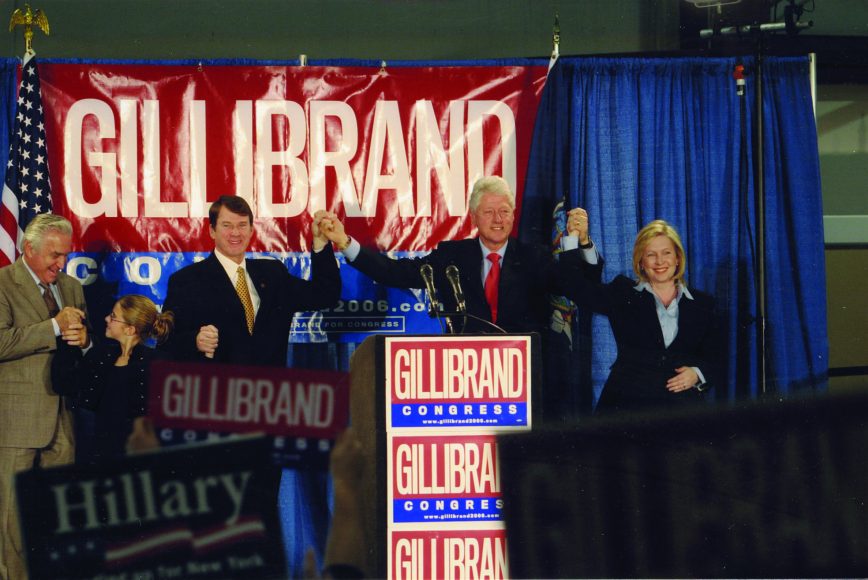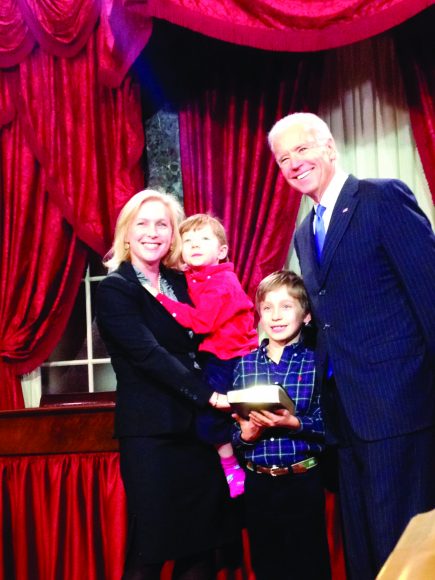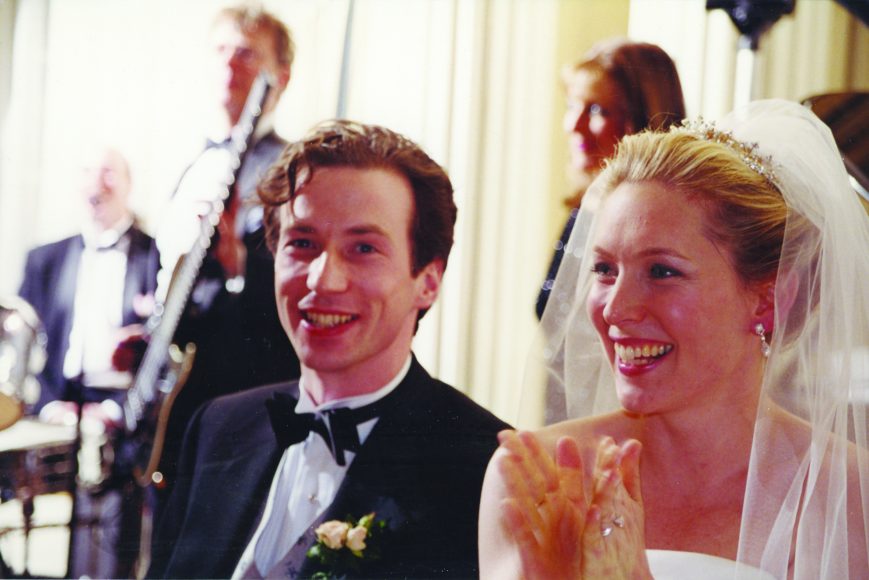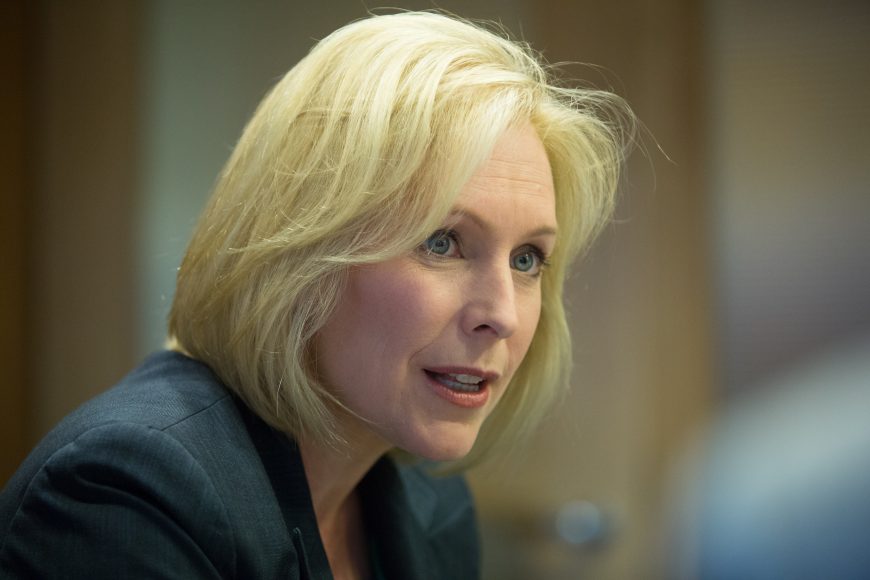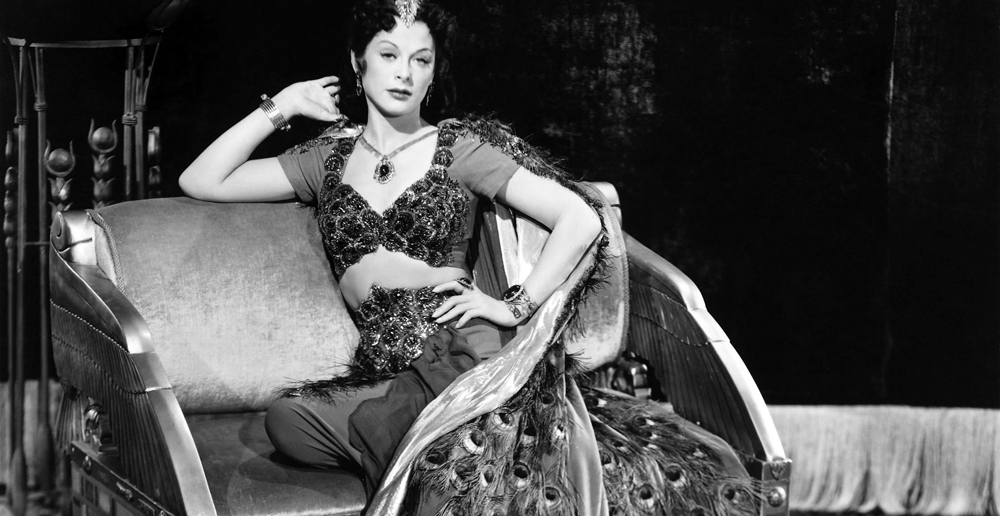In our myopic, attention-deficient, gossip-loving society, the mass media did not disappoint when it came to reviewing U.S. Sen. Kirsten Gillibrand’s new book “Off the Sidelines.”
Though the book is part autobiographical and part inspirational – but all about empowering young women with the age-old, but still pertinent mantra that “If you’re not part of the solution, you’re part of the problem” – media outlets seized on how she was called “porky” and “chubby” by two congressional male colleagues while she was pregnant. (She and husband Jonathan, a venture capitalist and British national, have two sons.)
As she made her rounds with the book, Gillibrand was peppered with the same question: Who are these men? Name them. Inquiring minds want to know.
She would not and will not.
In an interview at her Manhattan office the day her book was released, I asked, “Didn’t you just want to punch those so-called colleagues?”
“Many of them,” Gillibrand says with a smile.
And the reason to tell those stories? “For the young girl who is in her first job and her boss or someone she works with says something rude to her – I want her to feel that she’s not alone. These things happen all the time, they happen to U.S. senators. And it doesn’t mean anything, you can push on and achieve many things and you can discount their obnoxiousness or piggishness whatever it might happen to be and recognize that sometimes you have challenges. It’s not great it’s not helpful, and it does sometimes cut your self-esteem, but at the end of the day, you’re tougher, you’re stronger and you can do what you aspire to do.”
Gillibrand, 47, started her own aspiring at the age of 6 when she said she wanted to be a lawyer, just like her mother.
“My mom was really my role model. I loved the fact that she decided to become a lawyer, and combine that with being a strong and good mom and I just remember her as the epitome of multitasking – she would be on the phone dealing with some law case she was working on, sweeping the floor and putting in the roast for dinner. She was doing it all at the same time and had this ever-present role that was so warm and engaging and exciting. I want to be just like her.”
Gillibrand says that she also liked her mother’s confidence.
“I loved that she wasn’t afraid and that she was excited to be a lawyer and be an advocate for other people. She helped people buying their first home or adopt a baby and I love that about her career. But she was there every night, making dinner and making sure she was there for my sister and brother and me. And that also had an impression on me.”
But it wasn’t just her mother who made a big impression on her; it was her maternal grandmother as well, to whom she dedicates her book.
She writes in her book: “My mother and my grandmother are two of the fiercest, most capable, bighearted, and original women I know. They created my frame of reference for women and work. And they taught me the bedrock lesson of life: Be exactly yourself.”
Her grandmother, Dorothea McLean, better known as Polly, was tough as nails, swore – something that rubbed off on Gillibrand – told dirty jokes, and as a secretary in the New York State Legislature, soon made herself into a force to be reckoned with when it came to politics. She also had a longtime relationship with Erastus Corning, the man who eventually became the longest-serving mayor of Albany, from 1942 until he died in office in 1983.
Your grandmother seemed like a pip, I say to Gillibrand.
“Yep,” she laughs, “she was a pip. She was a bit salty. Yeah, she had a lot going on, but she really aspired to have a voice in politics and that was so rare back then for women to have any role. And she galvanized other women so that together their voices could be heard and they could really amplify each others’ priorities.”
Polly was all about the job and politics.
“She was among all these men and women who really spent their lives in the trenches trying to win elections and make sure their values and their priorities were, you know, what was really being represented.
“And she always rolled up her sleeves, she wasn’t afraid to do any task that her candidate needed. It didn’t matter if it was knocking on hundreds of doors or hosting a fundraiser in the middle of a snowstorm, she would do it.
“And that really taught me the importance of resiliency and working hard and being helpful. And just saying how can I help. It really defines what politics is really about and that’s the extension of public service.”
As Gillibrand tells stories of her own struggles and challenges in the book, she says she does so in the hope that they inspire other women to raise their voices and “really endeavor to make a difference.”
It was personal stories of first responders to the terrorist attacks of Sept. 11, 2001, that helped her get the 9/11 health care legislation passed.
With the fate of all the firefighters, police officers and other emergency responders to the site where the Twin Towers once stood, who now were ill from cancers and respiratory diseases, Gillibrand needed to get the rest of her fellow senators on board to show that it wasn’t just a “New York problem.”
She met with U.S. Sen. Mary Landrieu of Louisiana who made a national issue of the families left stranded, hurting and wondering if their nation had forsaken them after Hurricane Katrina devastated New Orleans. Her advice was simple: Explain the horrible dilemma facing the first responders and tell the lawmakers why they should care.
“The story is what makes the difference because it’s who you’re fighting for, and their stories why it’s so urgent and why it’s so important. And frankly, nothing ever gets done in Washington unless regular people stand up and demand action. And so it has to be about regular people and what they need,” Gillibrand says.
“And that’s what the 9/11 health bill is about – our heroes, our community members who desperately needed health care.”
Gillibrand has learned that even the most junior senator can start a debate. In addition to the 9/11 health care bill, she fought for the repeal of the “Don’t Ask, Don’t Tell” law, and is also fighting for strengthening the laws of young women who have been sexually assaulted on campuses nationwide.
“Young women who have started this national movement deserve enormous credit and they’re perfect examples of what ‘Off the Sidelines’ is about. Horrible things happened to them, but to fight back they decided to raise their voice and make a difference and demand change. And they are changing the world, they are raising their voices and changing the world,” Gillibrand says.
“Two women in particular, Andrea and Annie, they just showed up to my office one day said we want to meet with the senator. …and I met with them and I couldn’t believe how horrific their stories were. How they were raped, and when they tried to report it they were told that they were lying. They weren’t believed and they were retaliated against for reporting these crimes! I was shocked they could be treated so poorly, but they didn’t say ‘Oh that’s too bad for me,’ they said we’re going to change this.
“And they’ve galvanized women and men all across the country, on college campuses and encouraging them to raise their voices to demand action and it’s working. They’re role models for all of us and they inspire me.”

